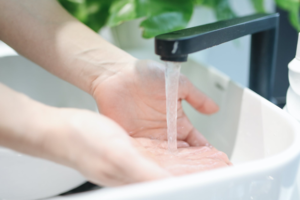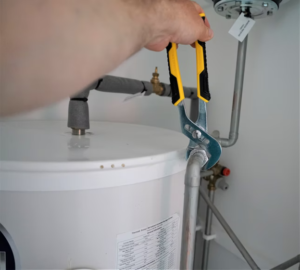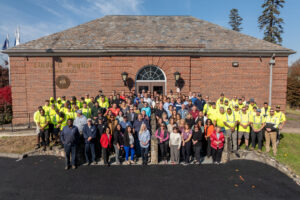
Water quality is a serious problem many countries struggle with. Even in the United States, cases of residents consuming contaminated water have been reported multiple times in places like Tampa, Florida. The worst part is cases of contaminated water are usually identified a little too late. Only after health officials have raised their concerns will the authorities start investigating such cases. Unfortunately, by that time, most people are usually suffering in hospitals, with lawsuits getting filed. Water contamination lawsuits are not unusual, just look at this camp lejeune water contamination lawsuit. For decades, officials have been aware of water contamination on this U.S. Marine Corps base.
That said, there are several preventive measures that you can take to reduce the risk of drinking contaminated water. Below are six of such measures:
- Use A Water Filter
Being a natural solvent, water does dissolve many unwanted minerals and other contaminants. Since there are lots of such contaminants in the ground, drinking contaminated water is much easier than most people think.
For example, iron can find its way into our drinking water. You can also find nitrite contaminants in water supply. Sometimes even water treatment products like chlorine can leave behind byproducts and other harmful contaminants, but that’s why you have to hire professionals for proper water treatment. You have to get rid of these contaminants before drinking the water.
A filtration system is one of the best ways of eliminating contaminants to make your drinking water safe for consumption. There are various types of filtration systems that you could use. For example, you can install a water filter on your sink or faucet. You could also get refrigerators with built-in water filters.
If your water is contaminated with minerals like nitrite, you can use distillation to remove the contaminants. A good distillation system can eliminate a host of natural or even artificial contaminants present in your water supply.
- Check Your Plumbing
Contaminants can find their way into your water supply if your plumbing system is not properly installed and maintained. For example, if you have old pipes that have developed rust, lead can leak into your water. That can result in severe health complications. Similarly, contaminants can find their way into your drinking water if your pipes are leaking. You may look into pipe coating options to clean your pipes. You may also consider hiring an expert in pipe relining in Shoreline, WA. Experts like Mister Greenway can help inspect your plumbing for any issues.

It’s not just about the plumbing system of your drinking water. A fault with your septic tank can also affect your water supply. For example, if the septic tank has a leak or overflows, contaminants can get into the ground and contaminate your water supply.
To avoid all that, you have to install a solid plumbing system and maintain it properly—partner with a reputable plumbing company like this plumbing and heating repair Company in Englewood, CO to do this job.
- Check Your Water Containers
Sometimes the problem is not with your water supply but the vessels you use. If the glasses, containers, and other vessels used to drink the water are not clean, they’ll contaminate the water.
Therefore, clean your water drinking vessels thoroughly. Ensure they’re also stored in a clean and safe place where they are not exposed to impurities.
- Drain The Water Heater Annually
Water heaters collect sediments, metals, bacteria, grime, and other impurities over time. The impurities build up and contaminate your water supply. In addition to that, they also tend to lower water pressure.
Draining the water heater is the best way to prevent that. Experts recommend draining the heater at least once every year. Although you might be able to drain the heater yourself, it’s good to get an expert like Apollo Plumbing to do that job.
- Get Your Water Tested
Prevention works really well in keeping you and your family safe from contaminated water. However, your precautions may not be enough in some cases. Some impurities might still find their way into your water supply. The worst part is you will think you are safe simply because you’ve taken several preventive measures.
To ensure your water is actually safe, take the extra step to have the water tested. You can find a lab online and send over a sample. Your plumber can also help you get the water tested.
Doing this will help show any potential issues present in your drinking water. The best part is it can also identify hardness, taste, and foul odor problems in the water. This will let you know if you need a water softener install.
- Avoid Hot Tap Water
Boiling water is a classic technique for removing impurities from drinking water. However, drinking boiled water is not the same as using water from a hot tap. Hot water coming from the tap can dissolve sediments present in the pipes. These sediments will mix up with the water to contaminate it.
Therefore, avoid using hot tap water. If you want to drink warm water or wish to have your water boiled before drinking it, boil the water separately.
Drinking contaminated water can result in severe health issues, not to mention the financial repercussions. Follow the above tips to safeguard your water and keep your family safe.






